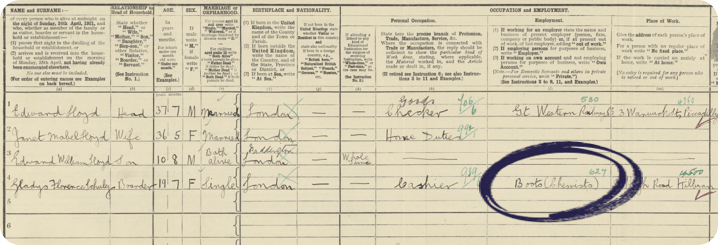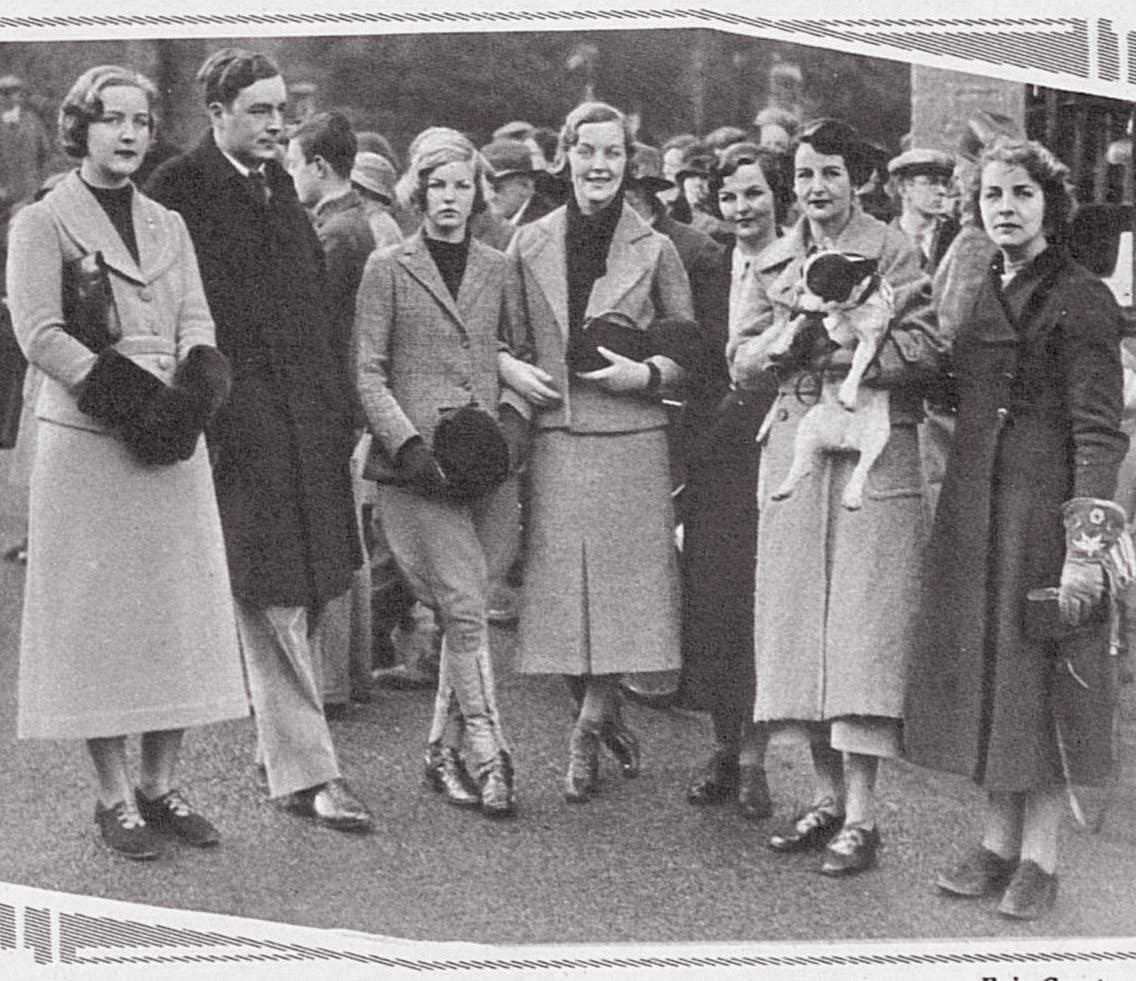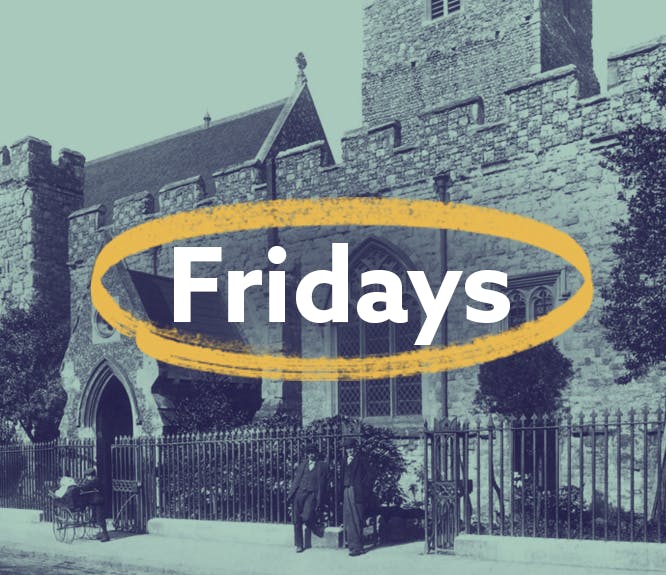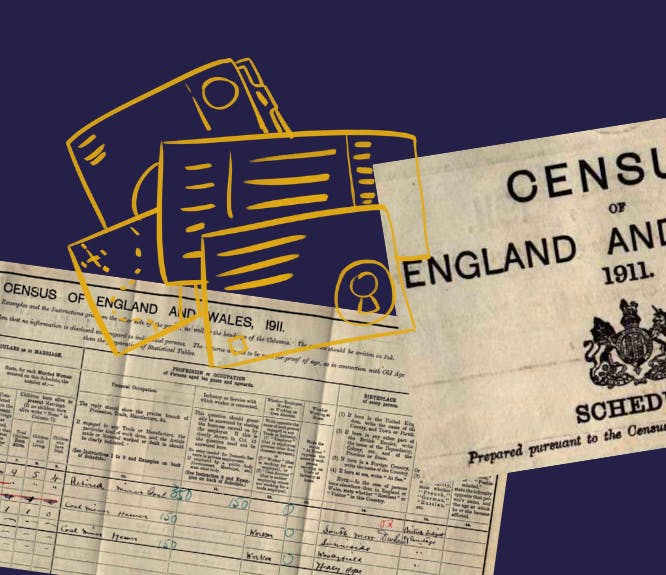Here's everything you should know about UK census records, from the 1921 Census to the present day
7-8 minute read
By Niall Cullen | June 2, 2023
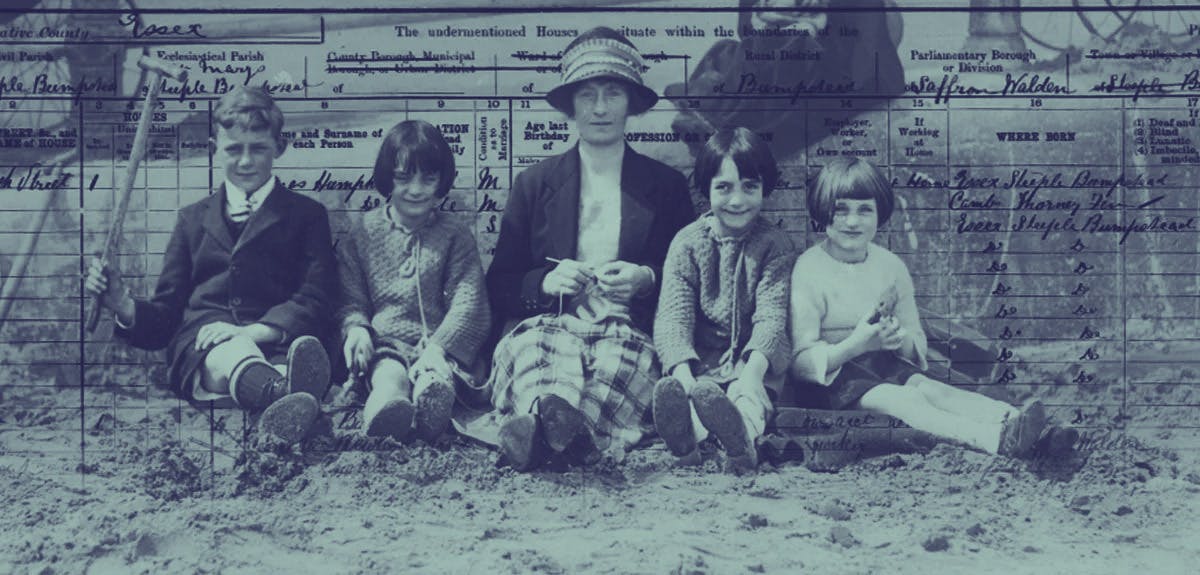
UK Census records can tell us a lot about our family history. Use this handy guide to find out when each key census was taken, when the next census will be released, and much more..
Census records are some of the most important resources for British family history. They help you track how your family changed over time and reveal information about your ancestors that you won’t find anywhere else. Historical censuses are held by The National Archives and are also available as online records at Findmypast.
This handy guide explains the history behind census records, what they can tell you about your family history and some important dates to watch out for now and in the future.
Censuses explained
Censuses are recorded by governments periodically and act as population reports. The official meaning of a census from the Oxford Dictionary says it's;
"the process of officially counting something, especially a country’s population, and recording various facts."
Taking a census usually involves all householders completing census forms that list information about their lives and their family on a specific day periodically. A census taker or enumerator delivers and collects the household forms in their assigned area.
Why are censuses important?
The recorded population data is used by governments for planning things like healthcare, education and employment services at a national, regional and local level. From a genealogy perspective, historical census records are invaluable snapshots of your relatives at a given point in time.
How often is the British census?
In the UK, censuses have been taken on a given census day every ten years since 1801, with just one exception. The 1941 Census didn’t happen due to the Second World War.
That wasn't the only problem affecting census records during wartime. A fire in 1942 completely destroyed the 1931 Census for England and Wales. For family history, a useful way to bridge that unfortunate records gap is by using the 1939 Register as a census substitute.
When is the next UK census?
The next census is scheduled to take place in 2031, a decade on from the most recent one on March 21, 2021. Statisticians have predicted that the 2021 Census could be the last of its kind as cheaper alternatives for gathering data are explored. The 2021 Scotland census has been postponed until 2022 due to the coronavirus pandemic.
Completing the census is your chance to leave your mark and help shape the future. Just imagine, generations from now, your descendants might be checking it to find out more about you...
The history of the UK census: what can we learn?
From 1801 to 1831, census records were used to create summaries of localities and later destroyed. So, for family historians, the full censuses dating from 1841 to 1921 are the ones of real interest.
Here’s a brief summary on the history of British censuses and what these detailed family records can tell you.
1801 Census
The first UK census was taken on 10 March 1801. Only fragments like 1801 Kent, Dartford Census include details useful for tracing family history.
1811 Census
Taken on 27 May 1811, only summary counts of households were collected so it’s not very useful from a genealogical perspective.
1821 Census
Like those before it, only counts were taken for this census which took place on 28 May that year. You’ll find some exceptions that do include householder details for areas like Kent, Westminster, and Orkney.
1831 Census
This census was taken on May 30, 1831. Excerpts from Westminster, Sheffield and Shrewsbury survive, among others.
1841 Census
The first fully surviving UK census was taken on June 6, 1841.
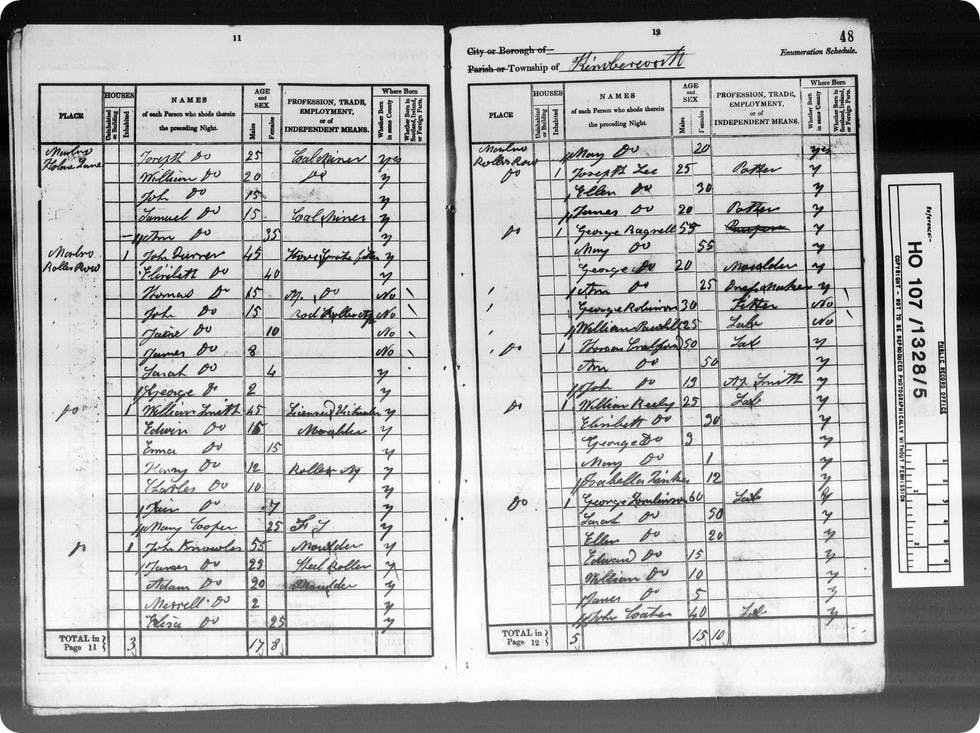
1841 census return from Lancashire.
The 1841 Census can reveal useful information for your family tree including:
- Names
- Ages
- Genders
- Addresses
- Birthplaces
1851 Census
The 1851 census took place on March 30 that year.
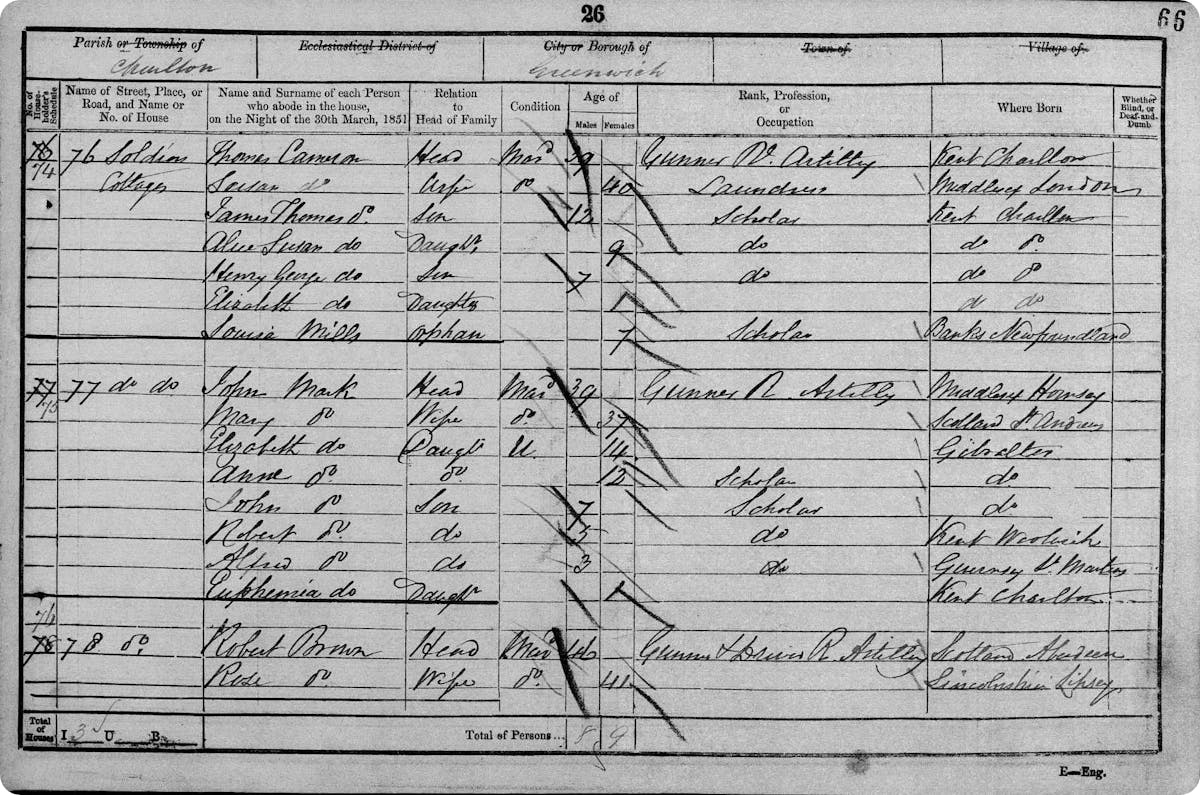
1851 Census return from Greenwich.
As well as all of the information included in the 1841 Census, this edition also features more information on your family’s relationships. Each entry includes:
- Relationship to head of household
- Marital status
1861 Census
Taken on April 7, 1861, this census includes all of the same information as the one that was recorded a decade earlier.
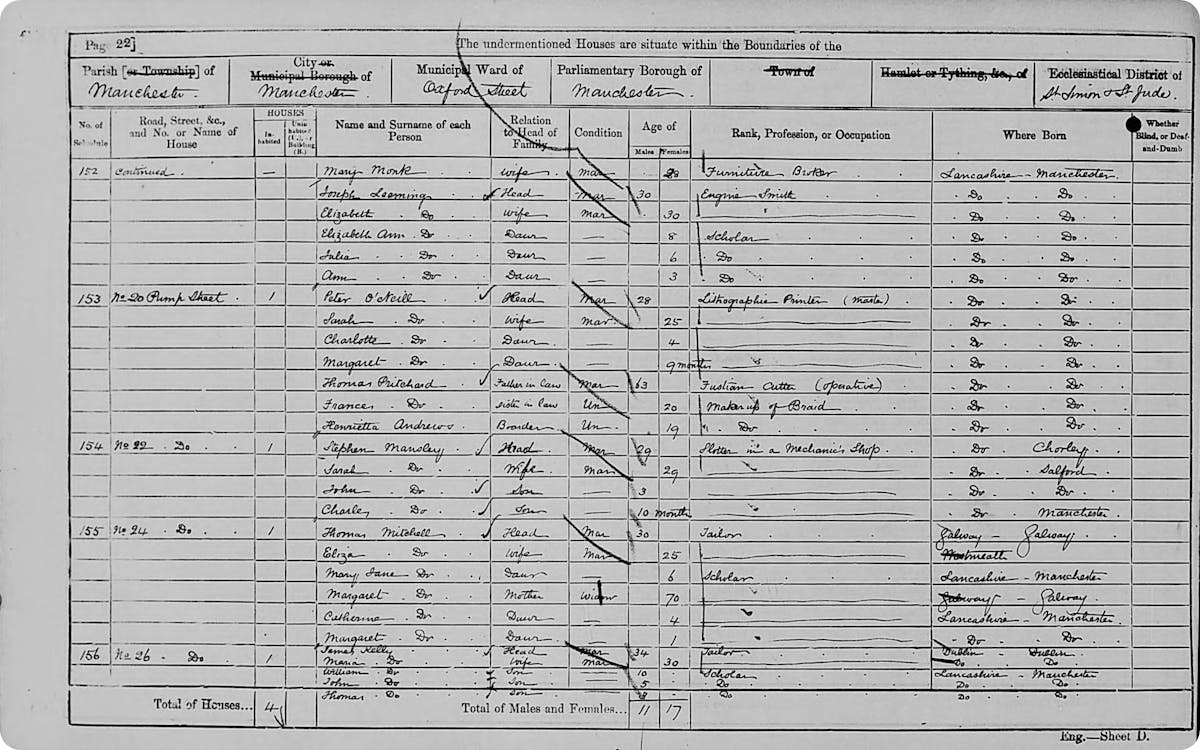
1861 census return from Manchester.
On Findmypast, as well as searching census records for a person, you can also search British censuses by address.
This is perfect for tracing who used to live at your address or how your local area has changed over time.
1871 Census
Another UK census was recorded in England, Scotland and Wales on April 2, 1871.
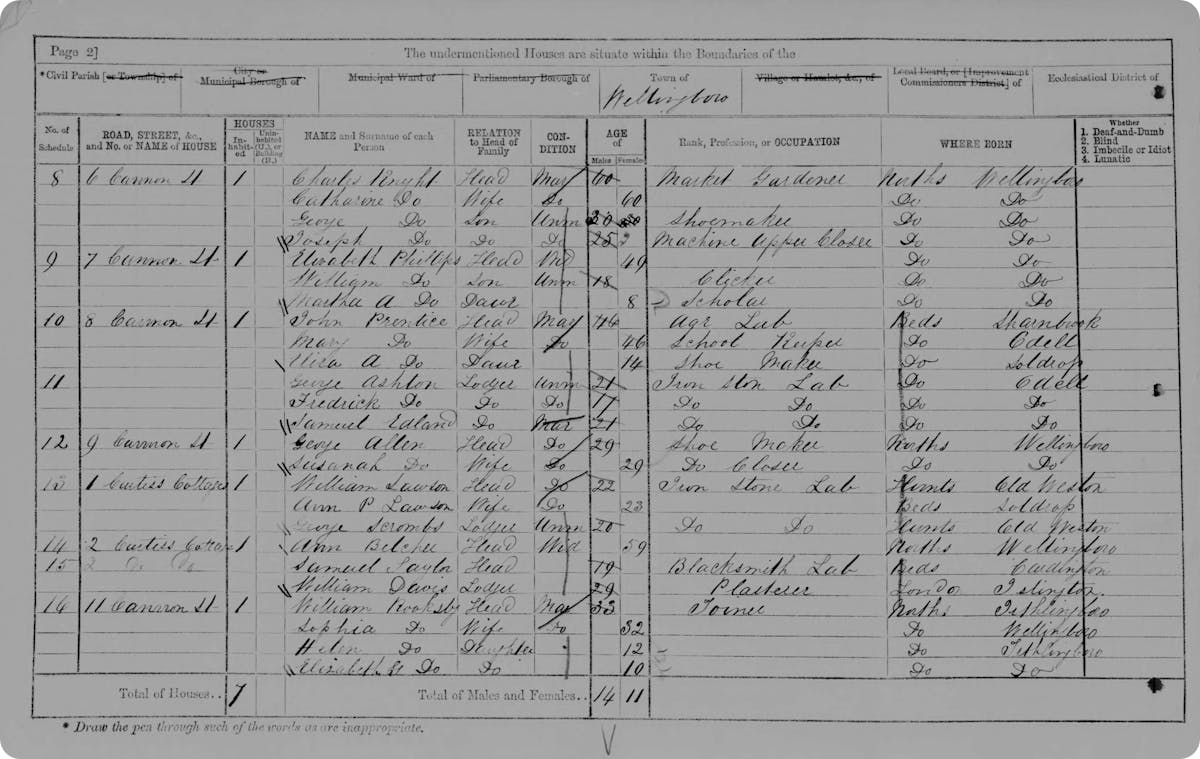
1871 Census return from Northamptonshire.
The information that was captured in the previous two censuses was sought again in 1871.
1881 Census
Transcripts of the 1881 UK Census, recorded on 3 April that year, are free to access on Findmypast.
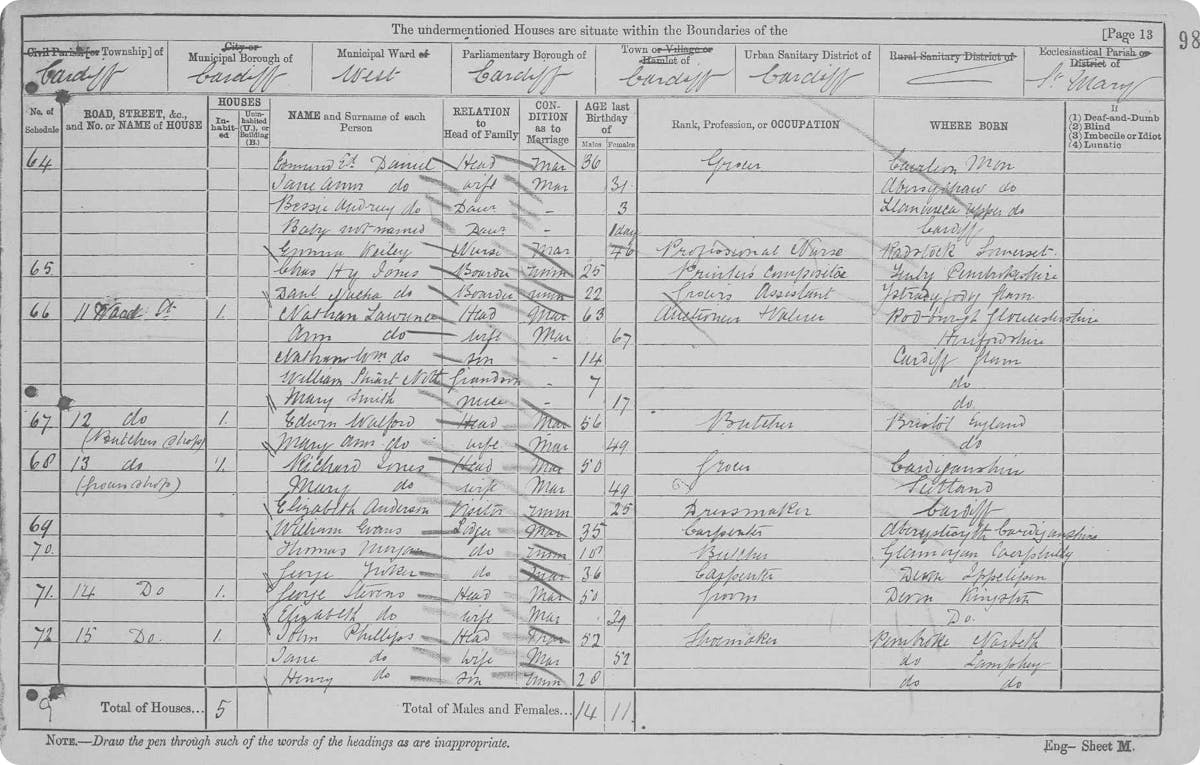
A naval 1881 Census return. Explore for yourself here.
Like previous censuses, details on names, ages, addresses and family relationships are included.
Once the 1881 Census was fully compiled, officials noted that there was an alarming rise in the number of individuals being reported as "deaf and dumb", compared to previous census returns. After inquiries were made, it transpired that many enumerators had recorded babies as being deaf and dumb simply because they could not speak.
1891 Census
For the first time, the UK census recorded a person’s employment status in 1891. This adds even more color as you build a detailed picture of your ancestors’ lives.
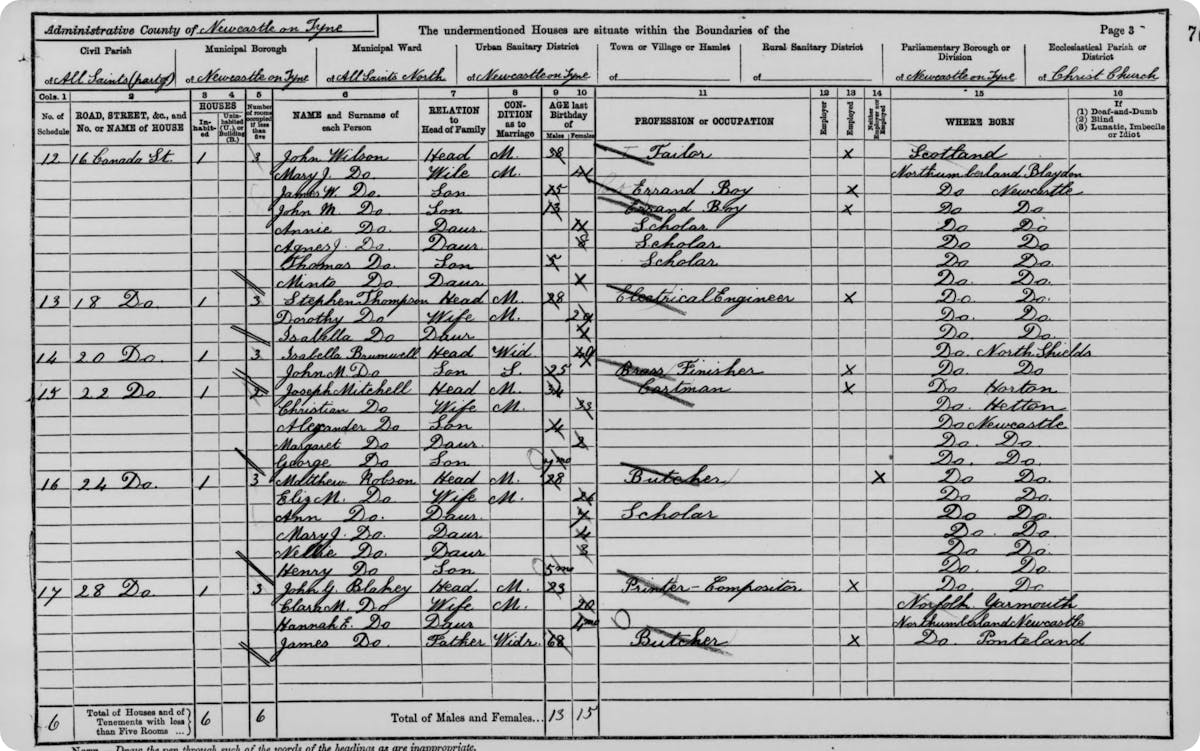
1891 Census return from Newcastle.
In Wales, the 1891 Census included an extra question on the language spoken.
This census took place on April 5, 1891.
1901 Census
The first UK census of the 20th century requested the same information as the one before it. It was taken on March 31, 1901.
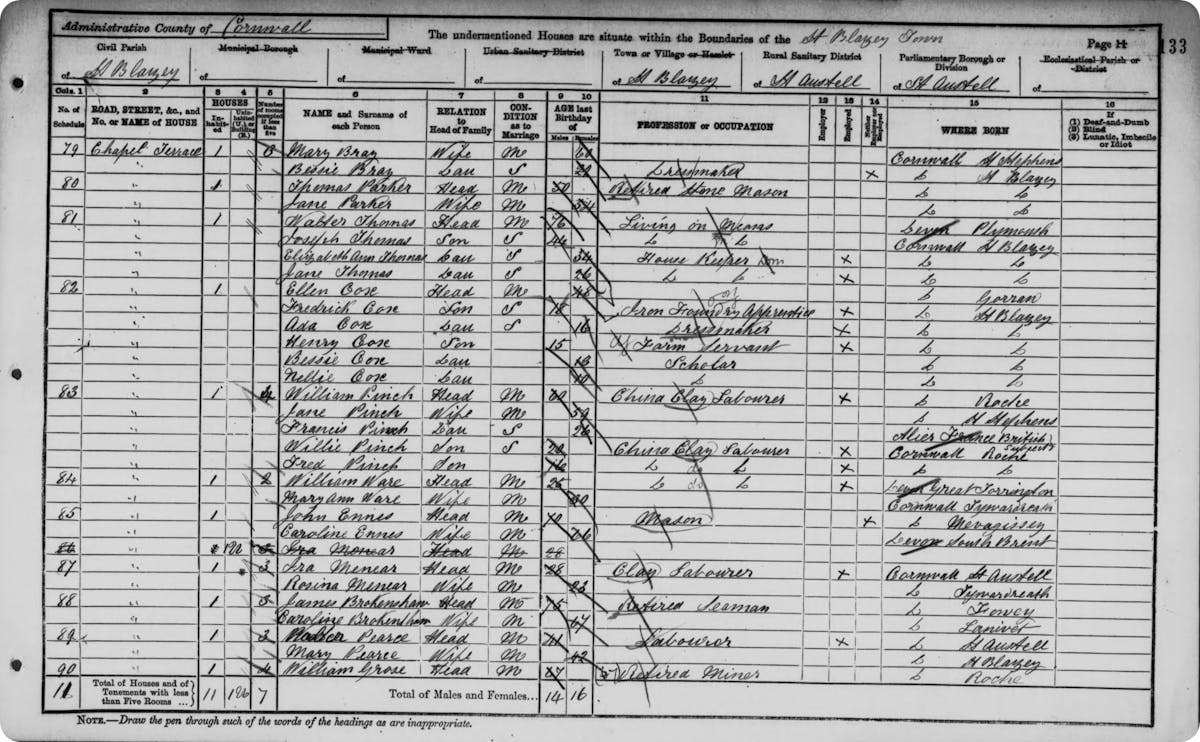
1901 census return from Cornwall.
As well as individuals residing in households, censuses also record people on board docked ships, hospital patients, prisoners, workhouse inmates, and military personnel stationed in barracks.
1911 Census
The 1911 Census was taken on April 2 that year. Until the release of the 1921 Census, it was often a must-search starting point for anyone new to British family history.
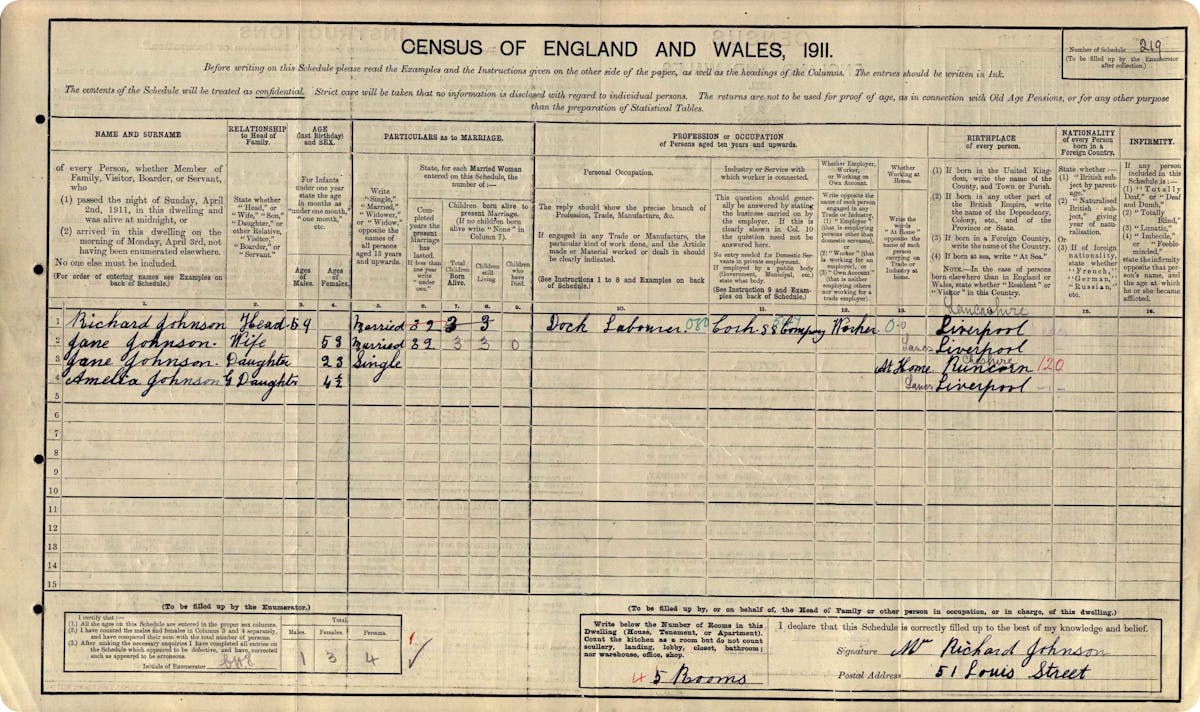
1911 Census return from Liverpool.
The 1911 Census contains far more information than any census that came before it. For the first time, the census recorded:
- Nationality
- Marriage length
- The number of children who were born, who died, and who were still living
Scotland's census from 1911 is only available online at scotlandspeople.gov.uk.
There are some known missing pages from UK census records. You can see the full list here.
1921 Census
The 1921 Census is the last surviving UK census taken before 1951, meaning it holds incredibly crucial information for those building a picture of their family history. It is available exclusively online on our site through a Premium subscription.
For the first time in history, the 1921 Census requested employer information, giving you a more enhanced picture of your ancestors. Our additional advanced search features also allow you to discover your ancestors even when you're missing previously-vital information, such as name or birthdate.
When will British census records next be released?
Due to UK privacy laws, 100 years must pass before the public can access census records. The 1931 Census took place on April 26 in England, Scotland, and Wales. Northern Ireland was recorded as part of the 1926 Irish Census so wasn't included in the 1931 UK Census.
Along with the information requested in 1921, the 1931 Census asked respondents about their usual place of residence. While the records for England and Wales were destroyed by fire, the 1931 Census for Scotland survives.
The next UK census was on April 8, 1951 with the records due to be released in 2052. It included questions on household amenities for the first time.
The UK census has continued every decade since the 1950s. Along the way, more and more questions were asked reflecting changes in British society. Technology was also introduced to make the process more efficient. In 1966, an additional census was taken trialing new methods of enumeration. The first question about religion appeared in 2001, while specific questions on civil partnerships first featured in 2011.
UK Census records: FAQs
If you've still got unanswered questions, then there's no need to worry. We've answered the most common census-related queries for you.
Are there any census records before 1841?
The 1841 Census is the first fully intact census that we have, covering all of Britain. Although censuses were taken every ten years from 1801, only fragments of the earliest ones remain. These remnants are stored in different archives across the country. We've made early census records from Dartford, Kent available on Findmypast - you can explore the 1801 and 1821 Dartford censuses.
How was the 1921 census transcribed?
The digitization of the 1921 Census of England and Wales was a massive job that we undertook alongside our partners the National Archives and the Office for National Statistics. This deep-dive will teach you all you need to know about the digitization and transcription process and all it entailed.
Can you view census records for free?
Census records are one of the most important sources for family historians. They offer a detailed insight into where your ancestors lived, their occupations, and other members of their household. The 1881 Census of England, Wales and Scotland is included in our collection of free records. To take your research to the next level, unlock the 1921 Census and so much more for free with a free trial.
We rely on historical censuses to fill in those pesky gaps in our family tree. What have you discovered, using UK census records? We'd love to hear more about the stories that you've uncovered - you can now get in touch with us directly, using this form.
